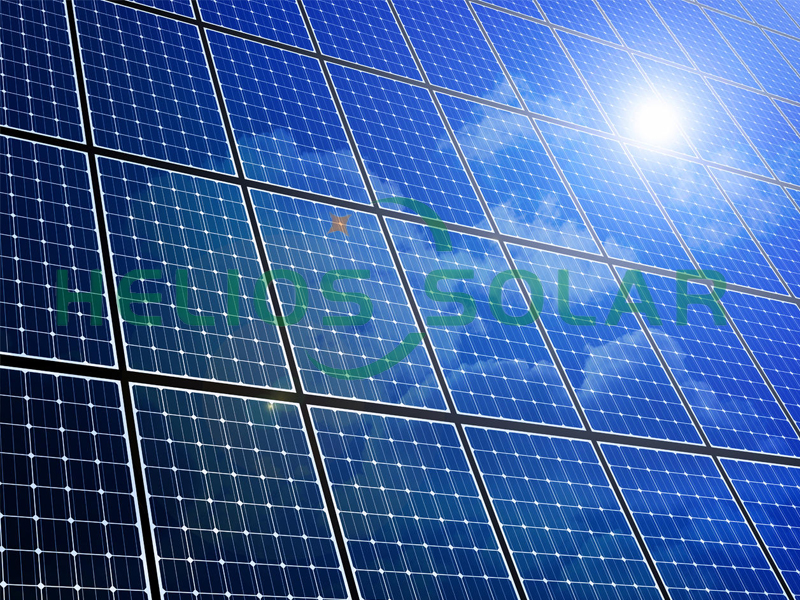Solar panels have become an increasingly popular option for renewable energy generation, providing a clean and sustainable alternative to traditional fossil fuels. However, the efficiency of solar panels can be affected by a variety of factors, including heat. In this article, we’ll explore the relationship between heat and solar panel efficiency and how it affects the overall performance of your solar system.
Solar panel efficiency refers to the ability of a solar panel to convert sunlight into usable electricity. The efficiency of a solar panel is a key factor in determining its overall performance and economic viability. Higher efficiency means solar panels can produce more electricity from the same amount of sunlight, resulting in higher energy production and cost savings.
One of the key factors affecting solar panel efficiency is heat. While it may seem counterintuitive, too much heat can actually reduce the efficiency of your solar panels. This is caused by the way heat affects the materials and processes within solar panels.
When solar panels are exposed to high temperatures, photovoltaic cell performance may be affected. Photovoltaic cells are components in solar panels that directly convert sunlight into electricity. These cells are typically made from semiconductor materials such as silicon. When the temperature of a solar panel increases, the conductivity of the semiconductor material also increases, causing the battery’s voltage output to decrease. This phenomenon is called the “temperature coefficient” and is a key factor in understanding how heat affects solar panel efficiency.
In addition to its impact on photovoltaic cells, excess heat can cause a decrease in the overall performance of a solar panel. High temperatures can cause increased resistance in the electrical connections within the panel, resulting in power loss and reduced efficiency. Additionally, prolonged exposure to high temperatures can accelerate the degradation of the materials used in solar panel construction, resulting in a decrease in their service life and overall performance.
How to mitigate the impact of heat on solar panel efficiency?
To mitigate the impact of heat on solar panel efficiency, manufacturers have developed various technologies and design strategies. One approach is to use materials with higher thermal conductivity to dissipate heat more efficiently. Additionally, incorporating a cooling system such as a radiator or ventilation system can help regulate the temperature of the solar panels and maintain their efficiency, especially in hot climates or under strong sunlight.
Another important consideration in addressing the impact of heat on solar panel efficiency is the orientation and placement of the panels. Proper positioning and installation help minimize the exposure of solar panels to direct sunlight and reduce heat build-up. This can be achieved through the use of tracking systems that adjust the angle of the panels to optimize their orientation towards the sun, and the installation of shading devices to prevent overheating.
In addition to the physical design of solar panels, ongoing research and development efforts are focused on improving thermal management of solar systems. This includes exploring advanced materials and coatings that can enhance the thermal performance of solar panels, as well as integrating smart technologies that monitor and control temperature levels in real time.
It’s worth noting that while heat can negatively impact a solar panel’s efficiency, it’s not the only determinant of overall performance. Other factors, such as the quality of the solar panels, mounting angle and cleanliness of the panels, also play an important role in determining the efficiency and output of a solar system.
In summary, the effect of heat on solar panel efficiency is a key consideration in solar system design, installation and operation. Understanding the relationship between heat and solar panel performance is critical to maximizing solar panel efficiency and longevity, especially in high-temperature areas. By implementing effective thermal management strategies and leveraging technological advancements, the negative impact of heat on solar panel efficiency can be mitigated, ultimately contributing to the continued growth and adoption of solar energy as a sustainable energy source.
If you are interested in solar panel efficiency, welcome to contact Radiance to get a quote.
Post time: Mar-13-2024


